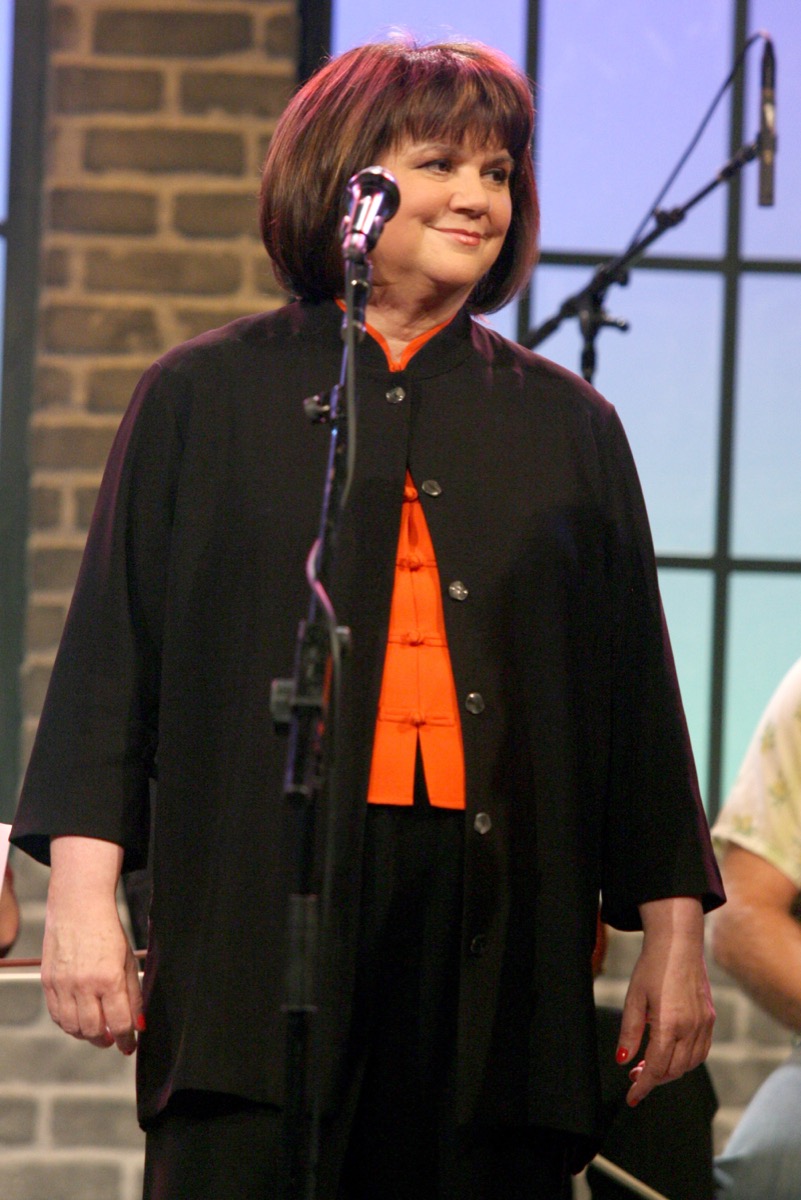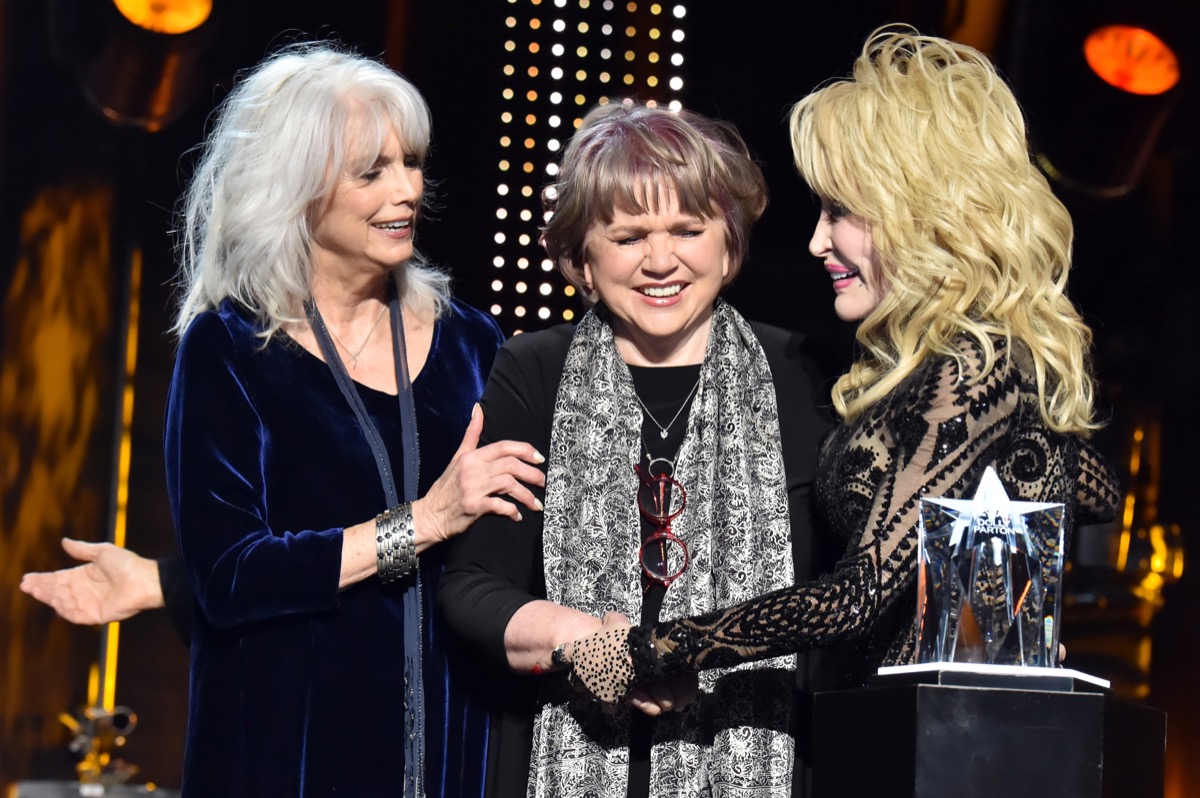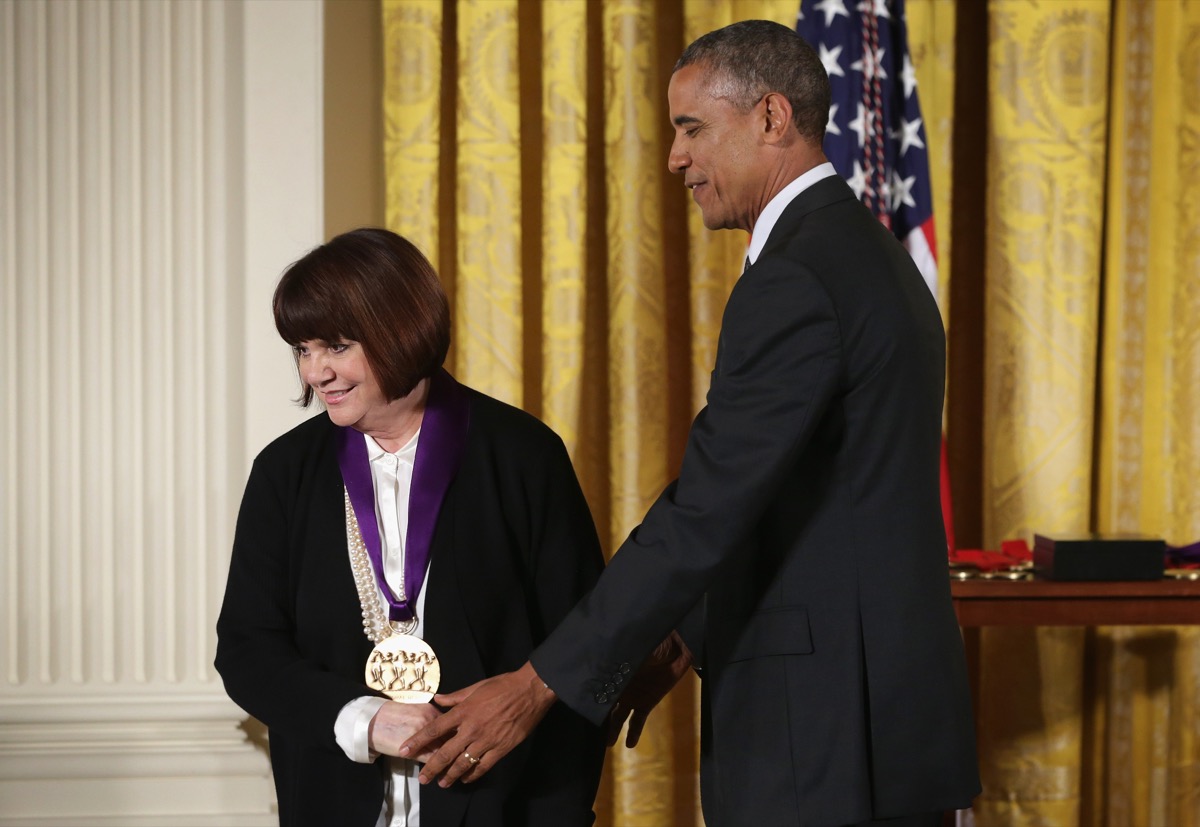The First Sign of the Disease That Ended Linda Ronstadt's Performing Career
Her tragic first symptom stopped the performer's career in its tracks.

A multi-platinum artist and 11-time Grammy Award winner, Linda Ronstadt enjoyed a decades-long musical career beginning in the late '60s. After first performing with the band Stone Ponies, she later launched a solo career with her breakout album, Heart Like a Wheel. Ronstadt became well-known for hits like "When Will I Be Loved" and "You're No Good," seamlessly straddling a range of genres including classic rock and country.
The "Blue Bayou" singer announced her retirement from music in 2011, and in 2013, she shared the reason why: she had developed a rare brain disease called progressive supranuclear palsy (PSP). A form of Parkinsonism that is distinct from Parkinson's itself, PSP is a motor disorder that causes problems with walking, balance, eye movements, swallowing, and fine motor coordination. Read on to learn the first symptoms that alerted Ronstadt to a problem, and to learn more about this rare condition.
RELATED: Michael J. Fox Just Gave an Update on His Parkinson's Symptoms.
Read the original article on Best Life.
Ronstadt says her first symptom was a sudden inability to sing.

Ronstadt said that when her first symptom—a sudden inability to sing—appeared in 2000, her "entire career flashed" before her eyes. "I remembered every show I'd ever done," she said.
Indeed, the first sign that her health was failing did go on to end her storied career. In a 2020 interview with CNN's Anderson Cooper, the singer recalled the moment she suspected she was sick: "I couldn't hear the top end of my voice. I couldn't hear the part that I used to get in tune," she told Cooper. "My throat would clutch up. It would just be like I had a cramp or something."
Looking back on the "five or six years" immediately following her first symptoms, she says she continued to appear on stage, relying heavily on her bands and backup singers to disguise the problem. "I didn't know why I couldn't sing — all I knew was that it was muscular, or mechanical. Then, when I was diagnosed with Parkinson's, I was finally given the reason. I now understand that no one can sing with Parkinson's disease. No matter how hard you try. And in my case, I can't sing a note," she told AARP.
RELATED: This Was the First Sign of Parkinson's Alan Alda Noticed.
She was originally diagnosed with Parkinson's disease.

Though she would later be diagnosed with PSP, Ronstadt was originally diagnosed with Parkinson's disease. Both assessments came as a surprise. "I was expecting [the doctor] was going to say I had a pinched nerve and they could fix it. And he said, 'Well, I think you might have Parkinson's disease,' and I was totally shocked. It took him about a year after that to come to the diagnosis and then took a little bit longer to come to supranuclear palsy," Ronstadt told CNN.
Unfortunately, while some Parkinson's patients respond well to certain medications and therapies, Ronstadt says PSP has no such courses of treatment. "I have a form of Parkinsonism that doesn't respond to standard Parkinson's meds, so there's no treatment for what I have," she explained to AARP.
She lived with symptoms for years before seeing a doctor.

After noticing her inability to sing, Ronstadt says she waited years before consulting a doctor. The performer says she attributed her symptoms to other root causes, including a shoulder injury that she believed was causing her hands to shake.
"It didn't occur to me to go to a neurologist," she told AARP, noting that she waited at least "seven or eight years" before having a medical evaluation of her symptoms. "Parkinson's is very hard to diagnose. So when I finally went to a neurologist and he said, 'Oh, you have Parkinson's disease,' I was completely shocked. I was totally surprised. I wouldn't have suspected that in a million, billion years," she added.
Today, she's focused on accepting her condition.

Ronstadt says that her rare diagnosis is an everyday struggle. "Everything becomes a challenge. Brushing your teeth, taking a shower," she shared with CNN. "Eating is hard … I've had to relearn how to eat," she added.
However, she says she's continually adapting to her new circumstances. "I find creative new ways to do things. I'm like a toddler," Ronstadt said.
When asked by Cooper what advice she would give to others facing Parkinson's or a similar diagnosis, Ronstadt didn't miss a beat. "Acceptance," she said.
RELATED: If You Notice This in the Morning, It May Be an Early Sign of Parkinson's.





















